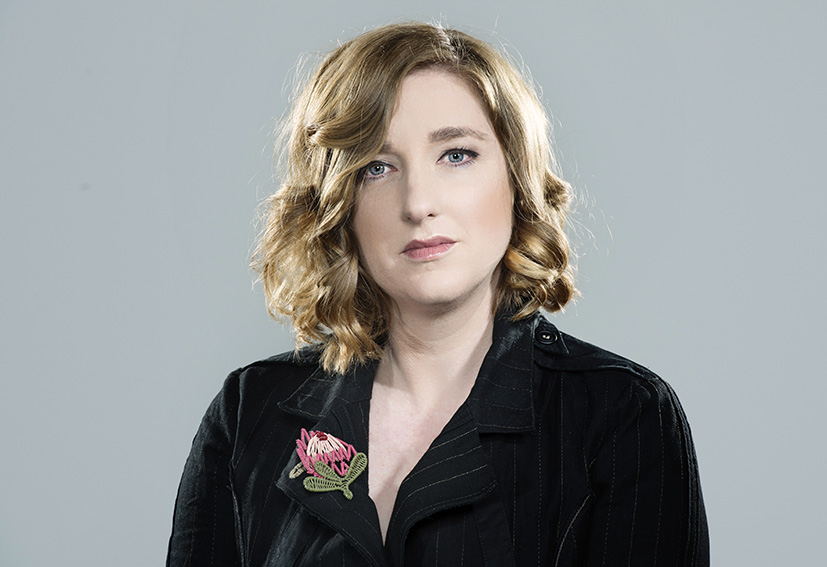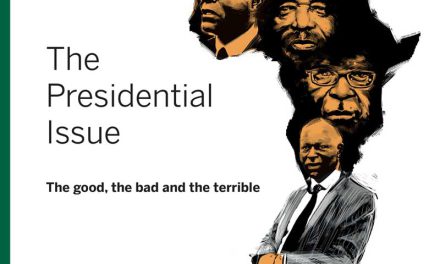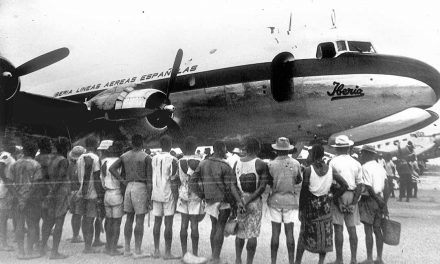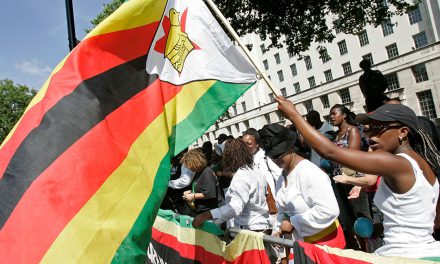African elites: multiple pathways

Frantz Fanon Photo: Wikimedia
By Anna Trapido
‘‘History is a graveyard of aristocracies,” the Italian sociologist Vilfredo Pareto famously wrote. In fact, Pareto introduced the word “elite” to the social sciences. In the early twentieth century he argued that a minority will always rule without recourse to what he considered to be outdated notions of heredity or class.
In contemporary political discourse, attacking the elite is a popular pastime. Internationally, United States President Donald Trump ran a successful 2016 electoral campaign based on a rejection of the “establishment”. Closer to home, two years ago Julius Malema told his 1.24 million Twitter followers that the occasion of the ANC’s 105th birthday was an opportunity “for the politically connected black elite to show off their ill-gotten gains”. Inter-elite bashing, in which aspirant elites seek to advantage themselves by sending rivals to Pareto’s metaphorical graveyard, is a common occurrence.
Power-hungry populism can obscure the need for a more complex analysis of elite behaviour. For better or worse, in human societies control is almost invariably concentrated in the hands of the few rather than the many. Elites determine the direction societies take, even if there are always countervailing trends and challenges to power from below. Because of this, their conduct is critical to the development of countries all around the world.
Beyond political point-scoring, examining elites is complex. The mechanisms through which they exercise power are often obscure, as they cross both public and private spheres of social institutions. Some elite conduct must be inferred from the action and inaction of organs of state, and economic, political and social institutions.
Here, I discuss two samples of countries drawn from the Sustainable Economic Opportunity (SEO) category of the 2018 Ibrahim Index of African Government (IIAG). This category measures the extent to which governments enable their citizens to pursue economic goals and provide opportunities to prosper. These samples consist of four countries in the high category (Mauritius, Morocco, Rwanda, South Africa) and two median-ranked countries (Nigeria and Algeria) on the SEO index.
Development is, of course, always an unfolding process. Moreover, the top-ranked countries cannot be said to represent an “ideal” type for development. Nevertheless, examining these two groups will help to gain some understanding of the traits of elites that can be associated with more, or less, successful economic development. In the high category, Rwanda and Morocco stand out as countries that have significantly improved their economic opportunity score over the decade that the IIAG index has been compiled. In contrast, median-ranked countries show little or negative change over time. Looking at this group gives more insights than examining bottom-ranked countries with profound governance breakdowns. In situations of total breakdown so many systems are broken that it is almost impossible to compare them to the more viable states.
In 1968, Mauritius was granted independence under the leadership of its first prime minister, Sir Seewoosagur Ramgoolam. Faced with a multi-ethnic democratic state, the existing Franco-Mauritian elite could no longer sustain the hegemony it had held for two centuries. Political dominance shifted to the Hindu elite, backed by the more numerous Hindu community. More than five decades later, Franco-Mauritians – who currently number about 10,000 out of a population of 1.2 million – can still be considered an integral aspect of the Mauritian economic elite. As Richard Sandbrook and his colleagues argued in a 2007 study, Franco-Mauritians “accepted an implicit bargain by yielding political dominance and accepting some redistribution in exchange for the legitimacy that a modest social democracy would generate – provided reforms excluded exorbitant taxes or asset redistribution.”
In line with C. Wright Mills’ 1956 account of the fusion of elite power, Carl Stone argued in a 1983 study about the Caribbean that in many instances a power elite emerged which constituted a tightly knit network of political and business elites. Mauritius, however, has two functional elites in the political and economic spheres, which can be said to offer some stability. Such a scenario is closer to Suzanne Keller’s pluralist model of elites in society, in which specialised elites lead multiple competitive groups, fortifying plurality of power and legitimising the existence of opposing factions.
Within this framework, Mauritius has transitioned from a low-income agricultural dependent economy into a diversified, upper middle-income economy. Inter-elite competition is combined with sufficient consensus to facilitate development. Since the 1980s that consensus has been enhanced by growing economic prosperity, which has seen Mauritius becoming one of the most democratically stable African states. Major contributors to the GDP include agriculture (4%), industry (22%) and services (74%), the latter dominated by finance and tourism. Mauritius provides off-shore banking services as an Indian Ocean hub. Aiming to become a high-income country in the next decade, and positioning itself as a gateway to East Africa, the government adopted a growth strategy of public investments in education, infrastructure, ICT and improvements in the business climate.
Following the 1994 genocide, Rwanda’s economic direction has been shaped by a technocratically oriented political elite. Government development strategies have channelled public investment to improve human capital, infrastructure and the ease of doing business, facilitating an average annual GDP growth of between 6% and 8% since 2003.
Rwanda is a densely populated, predominantly agrarian country and its economic elite is still small, with an estimated 600 dollar millionaires in 2017, according to a 2017 study by estate agents Knight Frank. By comparison, Kenya has a population four times larger and some 16 times more millionaires. The relatively small size of Rwanda’s economic elite is partly due to its lack of natural resources from which rents can be extracted, but this also means that it does not suffer from the “resource curse” that is conspicuously evident in Algeria and Nigeria.
In a 2011 book, Francis Fukuyama argues that state building requires the replacement of patrimonial affiliations by a meritocratic bureaucracy operating under the rule of law and with accountability. The explicit aim of the “Rwandan model” for development has been to weaken the conflict-ridden ethnic power dynamics of the previous order. For instance, the constitution prohibits the formation of political parties on grounds that they can give rise to discrimination. Commentators have argued that this allows Rwanda’s ruling elite – largely drawn from the Tutsi minority – to suppress opposing views, and that the country’s economic development is being achieved at the expense of civil rights.
In Morocco, elite power has traditionally relied on close ties to the monarchy. The monarchy is deeply involved in the economic life of the kingdom as its largest landowner and investor, with dominant positions in agribusiness, financial services and mining enterprises. However, structural adjustments during the 1980s saw neo-liberal reforms, which transferred state enterprises to business elites, according to a 2018 study by political scientist Merouan Mekouar.
In recent years, the monarchy has adopted a realpolitik approach, defending its power by attempting to limit reforms. In 2011, for instance, King Mohammed VI pre-empted opposition to the elite concentration of power during the so-called Arab Spring that saw uprisings in countries across North Africa by raising social security payments and devolving more power to parliament. More recently, the king has called for a new social contract for Morocco, according to a July 30, 2018 report by the North African Post.
Even though fairly limited, Morocco’s reforms have resulted in an increasingly outward-looking approach, with the government aiming to enhance the country’s attractiveness as a regional business hub. Currently, Morocco is successfully exploiting its geographic location and lower labour costs to develop secondary industries for the European market. After a 33-year absence, it rejoined the African Union In 2017.
South Africa’s economic elite historically harnessed the country’s mineral endowment to build infrastructure and industrialise under a racially segregated political system, which was enabled by a close and often corrupt relation to the state. Since the establishment of democracy in 1994, black citizens’ access to public services has expanded significantly, public finances stabilised, and the country has regained access to international debt markets. The ruling ANC’s development policy aims for economic diversification, extensions of infrastructure, enabling higher value chains and opening access to the economy to the previously excluded black majority. A progressive tax system helps to finance social security for the poor, which has reduced poverty levels.
Despite these advances, South Africa has achieved “an incomplete transition”, as a 2018 World Bank study puts it. Broadly speaking, the 1994 negotiated settlement saw the white elite conceding political power while retaining economic power. Moreover, the economy remains highly concentrated, with the existence of a small number of large dominant firms and state-owned enterprises (SOEs), increasing overall labour and input costs. Structurally, a high-cost, skills-intensive formal sector creates barriers to entry, while the country has a large pool of unemployed people lacking the skills in demand.
New, politically connected elites have grown up around government and SOEs, while the efficiency of the key public services of health, education and security has declined as the new elites increasingly self-provide and fail to hold public institutions accountable. These factors have blunted the ruling party’s stated intention of raising quality of life. Economic growth has slowed due to declining competitiveness, skills shortages and network infrastructure constraints. Meanwhile, recent revelations of the extent of state capture (the operation of the state for private gain) have seen declining business confidence.
Moreover, South Africa’s ruling party is increasingly split into factions that either aid state capture or seek to restore the integrity of state institutions. Even so, the latter group appears unable or unwilling to commit itself on key economic policy issues, such as property rights. The resulting policy uncertainty has seen the economy stagnate, with investors unwilling to commit the capital necessary for growth.
In his philosophical classic, The Wretched of the Earth (1961), which offers a critique of colonial society and its influence on the post-colonial experience, Frantz Fanon foresaw that the project of national liberation might be betrayed when new ruling classes annexed state power. In particular, Fanon was scornful of nationalisation, which he saw not as a genuine mechanism to build an economy but as a pitiless form of individual enrichment. Fanon died in 1961, having devoted himself to the cause of an Algerian independence that he did not live to see. But even in his lifetime, Fanon’s ideas became an embarrassment to that country’s revolutionary elite, and more than half a century after his death his comments read like prophesy of the Algerian situation.
The People’s National Army is still a key power elite in the country. In a 2009 study, Isabelle Werenfels described the privileged status of the famille révolutionnaire and the kind of social exclusion seen in the discrepancy between the “Arabisation” of the school system and the de facto dominance of French in the upper echelons of society, which “prevents contesting actors from moving into the elite”. As Fanon put it: “The business of obscuring language is a mask behind which stands the much greater business of plunder.”
Nationalised oil and gas dominate the Algerian economy, making up almost a third of GDP, 60% of budget revenue and 95% of export earnings. High oil prices from 2010 to 2014 facilitated selective economic liberalisation through privatised state-owned industries, which benefit politically connected individuals. “[A]ll economically relevant sectors – especially defence and hydrocarbons – have been transformed by the country’s politico-military elites into sources of political patronage,” writes Dalia Ghanem-Yazbeck in a 2018 study. However, since 2014, lower oil prices have reduced the elite’s ability to distribute rents and fund public subsidies, which is driving the government to become increasingly protectionist by cutting imports and promoting import substitution.
Nigeria, Africa’s largest economy and most populous country, is heavily reliant on oil and gas for foreign exchange earnings and government revenue. The conspicuous gap between its resource endowment and level of development has spawned many explanations, which centre around classifying the country as a neo-patrimonial, prebendalist state in which officials accrue state resources to themselves. Nigeria’s elites have their genesis in colonial rule, which enlisted local pro-colonial traditional leadership structures to serve as proxies within colonial boundaries.
According to Fukuyama, an arrested state-building process occurs when countries set up democracies before they have functioning states that are governed by the rule of law and administered through autonomous, meritocratic bureaucracies. Without these factors, politicians easily hijack state institutions. Moreover, Nigerian state institutions are riven by bifurcated norms: formally professed legal rules and other practical norms of conduct are co-opted by self-serving incumbents. In a 2009 study, Richard Joseph describes this as a “toll-gate culture … [which] has a fundamentally deleterious economic impact. It can become economically rational for individuals to impede the flow of commerce rather than facilitate it.”
As Nigerian novelist Chimamanda Adichie pointed out in a 2011 interview, the result is that Nigerian politics is, paradoxically, largely non-ideological. “Rather than a battle of ideas,” she said, “it is about who can pump in the most money and buy the most access. Cash is handed out to local leaders, bags of rice are given to women’s groups, and promises are made about fixing roads that nobody really believes will be fixed.”
This survey of two groups of African countries shows that there are multiple pathways to sustainable development, but such success almost invariably requires sustained economic development, that is, investment in human capital within a stable, outwardly-orientated, diversified and business-friendly environment. Elites in successful economies are not personally more virtuous than their counterparts in countries with restricted economic opportunities. What distinguishes them from their more predatory counterparts is that they understand that they exist within wider contexts, and that it is beneficial to them to invest at least some of the fruits of their advantage in the wider population.
Superficial elite-bashing tends to focus on the perceived personal morality and material status of powerful people. It does not address the structural shortcomings that can allow incompetent or predatory elites to damage the wellbeing of the majorities within their countries. In this regard, it is important to understand the difference between “elite” and “elitist”. The former values excellence throughout society, while the latter enables social exclusion and material plunder. The more elites are not elitist, the more successful their countries will be.

King Mohammed VI of Morocco Photo: Wikimedia

The first prime minister of Mauritius, Sir Seewoosagur Ramgoolam Photo: Wikimedia
Dr Anna Trapido is an anthropologist and a chef. She trained as an anthropologist at King’s College, Cambridge, completing her PhD in the department of community health at Wits University, Johannesburg. She qualified as a chef at the Prue Leith Chef’s Academy in Pretoria, and uses both disciplines in her work. She has won gold at the World Gourmand Cookbook Awards three times (for To the Banqueting House - African cuisine an Epic Journey, Hunger for Freedom – the story of food in the life of Nelson Mandela, and Eat Ting – lose weight, gain health, find yourself).













